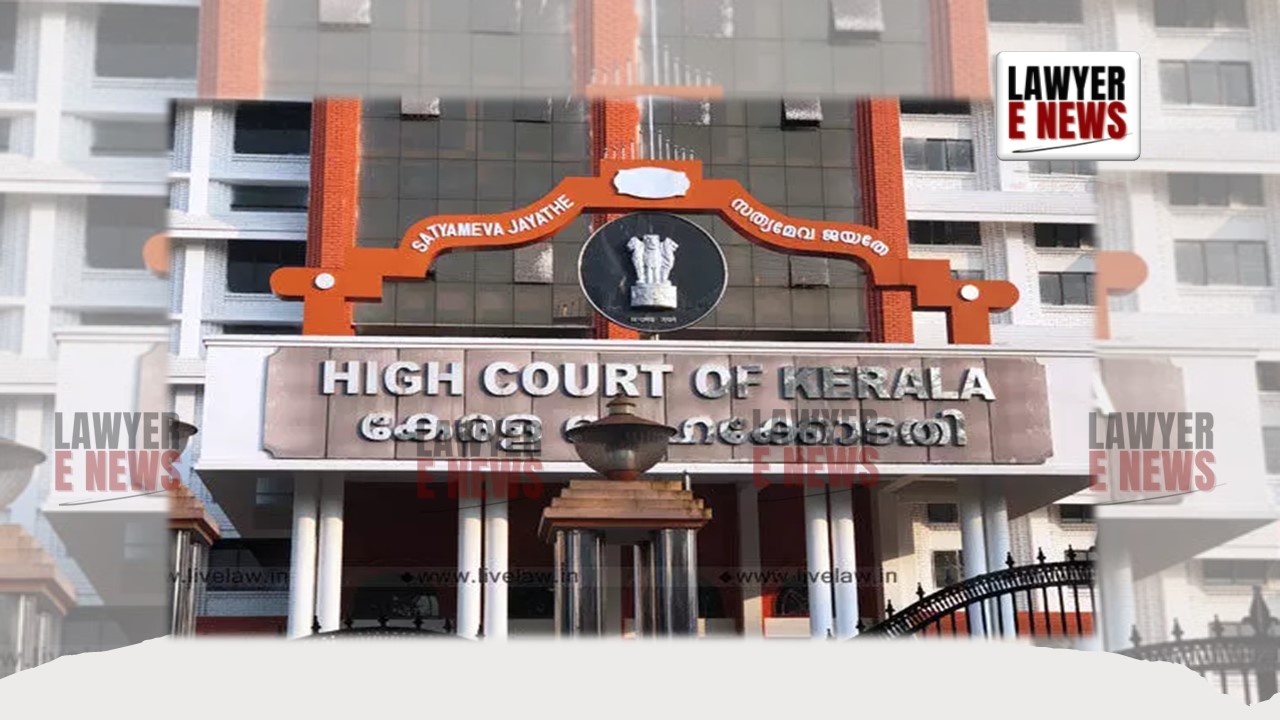-
by Admin
15 February 2026 5:01 PM



Kerala High Court partially allowed an appeal modifying a Family Court order regarding ownership rights over marital property. The Court held that the wife, Biji Girish V.J., is the sole owner of the land, while the husband, Girish S. Nair, is entitled to a one-half share only in the residential building constructed on the property. The Court also denied the husband’s plea for an injunction to restrict the wife’s exclusive possession of the house.
1. Husband Failed to Prove Contribution to Land Purchase
The husband claimed equal ownership of both the land and the building, alleging that the funds for purchasing the property were sent by him while working abroad. However, the High Court found no evidence to substantiate this claim. The husband’s bank records (Ext.A2) did not show any withdrawals coinciding with the purchase date of the land (12.12.2001). The Court concluded that the wife’s funds were used to buy the land, affirming her sole ownership.
The Court observed, “In the absence of any evidence linking the husband’s funds to the property purchase, it cannot be concluded that the land was purchased using his contributions.”
2. Joint Contribution to Construction of the House
While the wife argued that she funded the house construction using loans and personal contributions, the husband claimed he had repaid the loans. The Court acknowledged that both parties contributed to the construction. The wife provided evidence of availing loans, and the husband’s bank records showed regular withdrawals during the relevant period, supporting his claim of contribution.
The Court held, “It is probable that the residential building was constructed with contributions from both the husband and the wife. Therefore, the husband is entitled to a one-half share in the building alone, but not the land.”
3. Wife’s Claim of Gold and Cash Partially Proven
The wife claimed that her family had given her ₹1 lakh and 25 sovereigns of gold at the time of marriage, which were used for the property purchase and construction. The Court found evidence to support the cash payment, as evidenced by Ext.B4 bank records. However, the claim regarding gold ornaments was rejected, as the wife failed to provide details of where the ornaments were sold. The Court also noted that photographs from the marriage did not corroborate her claim of wearing substantial gold.
Relief Denied: Injunction Against Wife’s Exclusive Possession
The husband sought an injunction to prevent the wife from exclusively possessing the house, arguing for joint access. The Court rejected this plea, citing the strained relationship between the parties. It noted that joint residence was impractical and advised the husband to seek partition instead.
Under Section 41(h) of the Specific Relief Act, the Court emphasized that the husband had an alternative remedy:
“The joint residence in the building would not be conducive in the background of the strained relationship between the parties. The husband could very well seek the relief of partition.”
Final Reliefs Granted by the High Court
1. Land Ownership: The wife’s ownership of the land was upheld, disallowing the husband’s claim over it.
2. Building Ownership: The husband was granted a one-half share in the residential building constructed on the property.
3. Injunction Denied: The Court denied the husband’s request for an injunction, preserving his right to seek partition through appropriate legal proceedings.
The Kerala High Court’s judgment balances the financial contributions of both spouses while upholding the principle of fairness in property disputes. By distinguishing ownership rights between the land and the building, the Court clarified that mere claims of contribution must be substantiated with evidence.
The case underscores the importance of proving financial participation in matrimonial property disputes and reaffirms the judiciary's role in ensuring equitable outcomes.
Date of Decision: 10/12/2024
